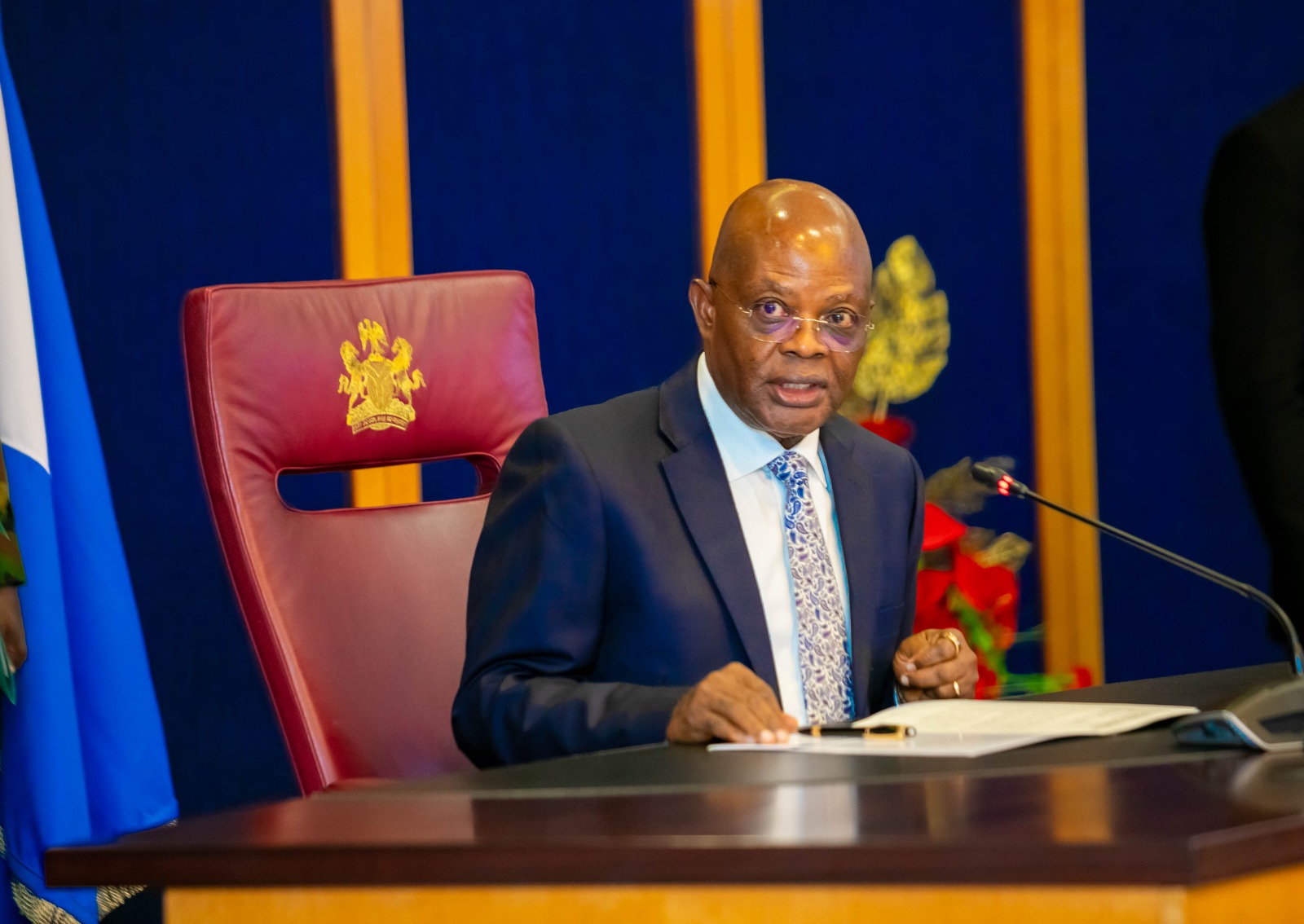The violent attack on the administrator of Ahoada-East Local Government Area, Goodluck Iheanachor, reportedly by a gang of about 30 ‘hoodlums’ is shameful. Although the incident appeared to be an aftermath of the state of emergency operating in Rivers State, it has nonetheless complicated the aberration and further damaged democratic principles, both in the state and the entire nation.
It is barbaric that a public officer could be so hounded to ‘resign’ under heavy assault as witnessed in the Iheanachor’s matter. Given that Mr Hector Ekatika, the Chief Security Officer (CSO) and Chief of Staff (CoS) to the Administrator, has denied complicity in the attack, it is important that the culprits and their masterminds be apprehended and brought to book.
The dastardly treatment meted out on Iheanachor fell drastically short of the tenets of the rule of law and democracy upon which Nigeria is built. There is a legal system of seeking redress by any citizen who feels wronged. There is no room for jungle justice, which is a recipe for anarchy. The attack on the administrator betrays these ideals and becomes more worrisome because it was committed against him in his capacity as a public official performing his duties.
Whatever could have been his ‘offence’, proper and legal steps should have been taken by the attackers to get justice. Taking the law into their hands is criminal. Extrajudicial punishment on any individual or group accused of committing any offence is unacceptable.
In a statement issued by the Rivers State Police Command to confirm the incident, the Public Relations Officer, Grace Iringe-Koko, said that at about 1:40 p.m. on June 20, 2025, the attackers, allegedly led by Ekatika, stormed the council secretariat and unleashed the mayhem. They assaulted Iheanachor, stole his mobile phones, forced him to sign a letter purporting his resignation, and carted away vital documents, both official and personal. Viral videos showed Iheanachor and the Secretary of the council, Mr Alabi, being brutalised by the assailants inside the administrator’s office within the secretariat. The videos showed Iheanachor being coerced to step down from his position. Iringe-Koko disclosed that the administrator had been taken to a hospital for treatment for the injuries he sustained during the attacks. She said the command had invited the CSO and others involved in the attack for questioning.
After the reprehensible attack was committed, the CSO spoke in a Channels Television programme where he denied involvement in the attack. Ekatika said he was aware of the brutality while it was going on, but when he went to the administrator’s office, he was asked to go back by someone who said the matter was strictly between the attackers and Iheanachor. And he obeyed the order.
The questions Nigerians are asking are: What is the function of the chief security officer? What was the CSO expected to do when, glaringly, his boss was being attacked? Should he have agreed to leave when the administrator he is being paid to protect is being brutalised? Assuming he was not strong enough to single-handedly confront the hoodlums, did he raise the alarm to alert the council officials at the secretariat to the incident? Did he call the police? How successfully can he debunk the allegation of his complicity in the attack?
The CSO could not have been the only person in charge of security at the secretariat. Where were the others when about 30 people entered the premises and made straight to the administrator’s office? Shouldn’t they have been curious about what was happening? Who are these 30 hoodlums?
In the same television programme, a young man who was featured for an interview, and who claimed to be a member of a grassroots movement known to be loyal to a powerful politician in the state, claimed that the attackers were not hoodlums but stakeholders who were not paid as expected. He accused Iheanachor of not doing well. He alleged that the administrator raised the security vote paid to him and yet did not respond to demands by the police, army, civil defence corps and others for money to repair their operational vehicles to be able to protect the people.
He claimed to have documents to back his allegations. He even asked why Nigerians thought the security agencies did not come to the administrator’s rescue. Are the attackers truly stakeholders, and in what capacity? Who is behind them? What work did they do for the government to pay them? Is it true that the security agencies demanded money? And when did the local government become their financier? Nigerians are waiting for answers to these questions because in them lies the cause of the shameful maltreatment of Iheanachor. The culprits should face the wrath of the law.
Given that the attack was carried out in a way that suggests the administrator was left to face the ordeal, it leaves room for suspicion that the mayhem may not be unconnected with the political crisis in Rivers State that led to the declaration of emergency rule, which is still in force.
The Sole administrator, Vice Admiral Ibok-Ete Ekwe Ibas (rtd), appointed administrators for the councils, which the people opposed. If really Iheanachor was accepted as the council boss, it would be surprising how about 30 hoodlums would be attacking him in his office and the workers in the secretariat would show no resistance; or were they intimidated or threatened not to intervene?
While the attack cannot be justified, President Bola Tinubu should revisit the emergency rule as soon as practicable, with a view to restoring the democratically elected leaders to run the affairs of the state for transparency and accountability. Restoring democracy in Rivers State can boost the integrity of government, which is very important at this crucial stage in Tinubu’s administration. It must be emphasised that steadfast adherence to ethical standards is key to good governance. A simple but potent way of caging critics and earning the respect and support of the people by the government is by ensuring that honesty, fairness and commitment to the general good manifest in its actions and policies. The will of the people in Rivers State should be respected.






